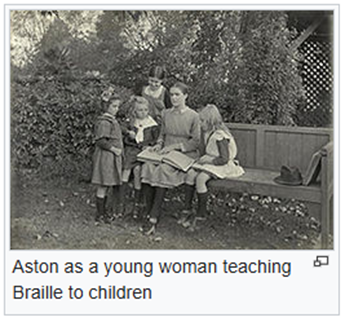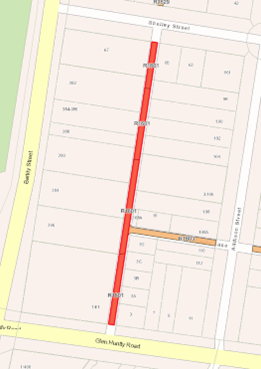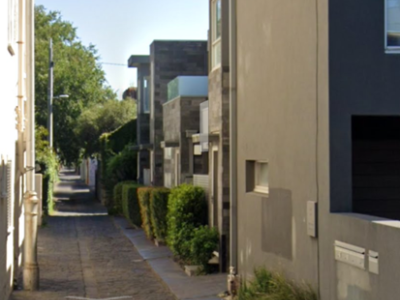This campaign is now closed. Thank you to everyone who provided feedback during the recent community consultation.
The City of Port Phillip is undertaking statutory procedures to name unnamed Laneway R1601 as Tilly Lane'. The laneway runs between Glen Huntly Road and Shelley Street, Elwood.
This naming is required to provide sufficient identification for visitors and emergency services. Renaming this lane won’t change your usage of the area or it’s access, but it will assist emergency services to save critical minutes when locating incidents and improve access for visitors and other essential services.
Matilda Ann Aston, better known as Tilly Aston, was a pioneering blind Australian writer, teacher, and advocate for the vision impaired. Born in Carisbrook, Victoria in 1873, she lost her sight completely by age seven. Encouraged by mentors, she enrolled at the Victorian Asylum and School for the Blind in St Kilda, where she began her education in braille. She later became the first blind Australian to attend university, though she had to withdraw due to limited resources and health challenges. Aston lived much of her life in Melbourne and Windsor, passing away in 1947. She is buried at St Kilda Cemetery, and her legacy is commemorated through the Division of Aston, a street in Canberra, and a sculpture in Kings Domain.
Aston’s advocacy work began with the founding of the Victorian Association of Braille Writers in 1894, which evolved into the Victorian Braille Library. In 1895, she established the Association for the Advancement of the Blind, now Vision Australia, securing major reforms including voting rights, free postage for braille materials, and transport concessions. In 1913, she became the first blind woman to lead the Victorian Education Department's School for the Blind, despite facing resistance due to her disability. She retired in 1925 after a stroke, having made lasting contributions to education and disability rights.
In addition to her activism, Aston was a prolific writer. She published eight volumes of poetry between 1901 and 1940, wrote short stories and memoirs, and edited a braille magazine for Chinese mission schools. Her literary work was widely recognised, with her story winning a Prahran City Council competition and her verse collection The Inner Garden considered her finest. Fluent in Esperanto, she corresponded internationally and remained committed to expanding opportunities for the blind throughout her life.
Naming the lane after a poet is especially fitting as the lane is located in Elwood’s ‘Poets Corner’, an area whose streets are named after literary figures such as Wordsworth, Shelley, and Byron.










